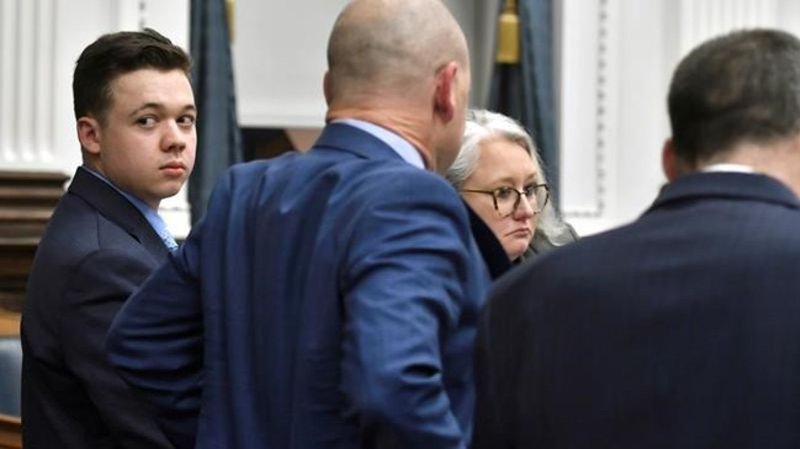
Jury begins deliberations at Kyle Rittenhouse murder trial
KENOSHA, Wis. (AP) — The jury has begun deliberating at the murder trial of Kyle Rittenhouse after listening to two weeks of dueling portrayals of Rittenhouse.
Prosecutors say he was a “wannabe soldier” who instigated the bloodshed; the defense says he acted in self-defense after coming under attack.
The 18-year-old Rittenhouse faces life in prison if convicted as charged for using a AR-style semi-automatic rifle to kill two men and wound a third during a night of protests against racial injustice in Kenosha in the summer of 2020. He is white, as were those he shot.
The case has become a flashpoint in the U.S. debate over guns, protests, vigilantism and law and order.
